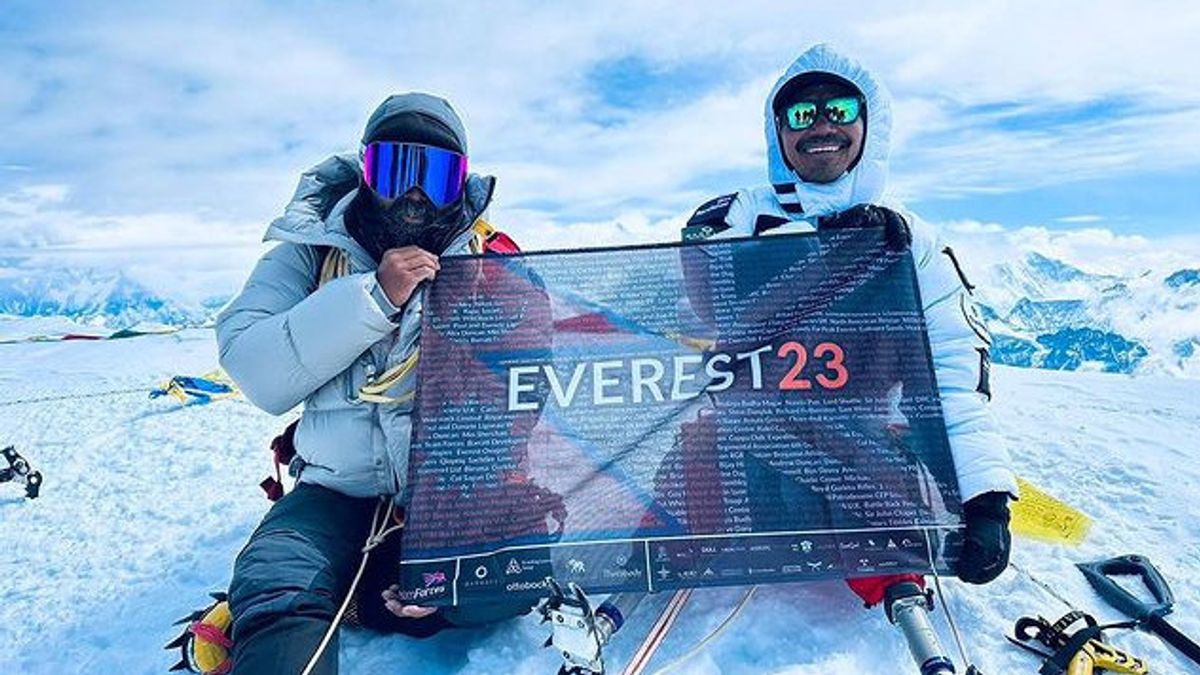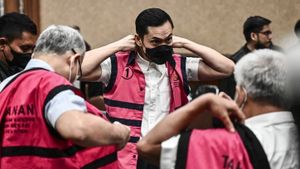JAKARTA - Born at the foot of the Himalayan Mountains and growing in Nepal surrounded by mountains and seeing Mount Everest in textbooks and local media, Hari Budha Magar thought of climbing it one day.
Busy completing his schooling, he then left his country to join Gurkha's union in the British army at the age of 19.
He saw and slid through mountains around the world on his mission and journey. However, he was still "thinking Everest all the time," he said in an interview.
His desire to climb the roof of the world is complicated by the explosion in Afghanistan in 2010, causing the two Buddhist legs of Magar to be amputated above the knee.
But after years of preparation and delays due to the coronavirus pandemic, as well as rules trying to prevent people with certain physical disabilities from climbing the mountain.
Budha Magar made history on Friday two weeks ago, by becoming a double amputated person above the first knee to reach a peak of 29,000 feet.
"Sometimes it doesn't feel real, the things I describe," said Buddhist Magar (43), recounting his journey in a video call from a tent at base camp Everest, highlighting cameras to show a rocky snow-covered terrain shrouded in fog, as reported by The Washington Post May 23.
The Magar Buddhists are part of a team of 12 people led by Krishna Thapa, another Gurkha veteran. They served together in the military for three years, before joining forces again in 2016 as Thapa plans Everest' expeditions.
"How do you think? I don't have legs," recalls Thapa when Buddhist Magar asked him.
"Do you think it is possible for me to climb Everest?" continued Buddhist Magar.
"We can only try," replied Thapa.
Buddhist Magar started training for years, as these two friends made careful plans to make this historic effort. However, an obstacle arose in 2017, when the Nepalese government banned the visually impaired and amputated people from climbing Everest, in an effort to reduce the death toll on the mountain.
This rule was criticized for being considered detrimental to persons with disabilities. The Buddhists of Magar and supporters with disabilities lobbied against the ban. Gayung also greeted Nepal's Supreme Court overturned the decision in 2018, paving the way for the Buddhist expedition of Magar.
After adjusting to altitude and a snowy and windy environment at base camp, the team intends to start their journey to the top on April 17, exactly 13 years after the explosion in Afghanistan that claimed Buddhist Magar's feet. However, bad weather delayed them for weeks.
"This year's conditions are very difficult," said Thapa. (At least 10 people have died on the mountain in 2023, according to authorities' reports).
Unpredictable wind - despite access to three different weather forecasters - and slippery snow-like conditions have also proven challenging.
"Salju is very gentle and I don't have a knee to lift it," said Buddhist Magar.
Buddhist Magar said, there were times when he wanted to give up. Meanwhile, Thapa said there were moments when he thought they would not be able to move forward. But they still survive.
"The day kept surprising me," said Thapa.
They peaked at around 15:10 a.m. on Friday, spending only a few minutes at the peak due to difficult conditions. At the summit, Buddhist Magar said that his tears - happy tears - frozen on his cheek.
Some of the team members had to take more oxygen on their way down, and Buddhist Magar was so exhausted that he slid down in a supine position. (His snow clothes were torn).
The Buddhist Magar, who lives in Canterbury, England, said his 10-year-old son was very worried about him trying to climb.
"I promised myself, 'I'll come back for you. I'm not going to die up there,'" he said.
Nepal's government has struggled to prevent deaths and densities on Everest. Traffic congestion has become so severe that many people died of hundreds of adventurers ambitious to flock to the mountain.
Many Nepalese believe, people with disabilities are caught in their past lives, said Buddhist Magar.
"I want to show that people with disabilities can have a happy, successful and meaningful life," he said. "Our disability may be our weakness, but we can do many other things," he concluded.
The English, Chinese, Japanese, Arabic, and French versions are automatically generated by the AI. So there may still be inaccuracies in translating, please always see Indonesian as our main language. (system supported by DigitalSiber.id)













